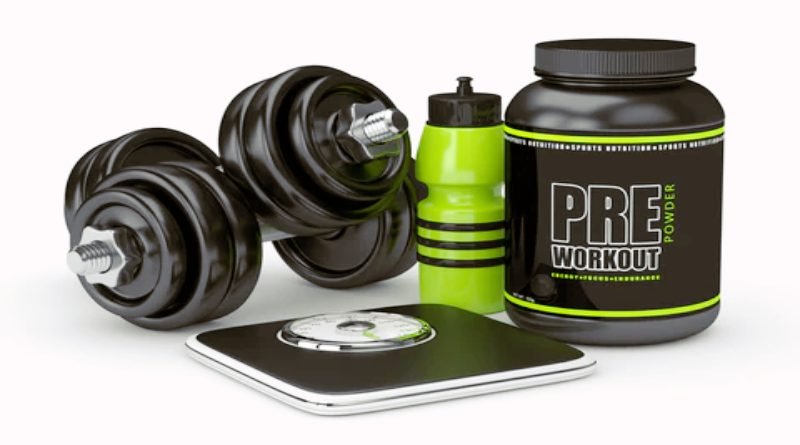Stirring the Power: Pre-Workout Powders and their Intrinsic Role in Exercise Efficacy
Introduction
In the mosaic of fitness and exercise, multiple elements blend together to forge the optimal workout experience. One particular component, often underscored in gleaming tubs of vivid hues and promising labels, is pre-workout powder. In the realm of athletic performance and gym culture, pre-workout supplements have etched their significance, provoking discussions among fitness experts, health professionals, and athletes. This comprehensive examination aims to dissect the prominence of these powders, bridging the gap between scientific insight and palpable results on the gym floor.
The Science Behind Pre-Workout Powders
Rooted in the bedrock of exercise science, pre-workout supplements harbor a multitude of ingredients, each meticulously chosen for their potential to enhance physical performance. Key constituents such as caffeine, creatine, beta-alanine, and nitric oxide precursors coalesce, ostensibly providing the user with increased energy, enhanced blood flow, improved endurance, and amplified focus.
Caffeine, a central nervous system stimulant, is heralded for its capacity to enhance alertness and mitigate fatigue, rendering it a pivotal inclusion in many pre-workout formulas. The scientific literature ubiquitously points toward caffeine’s proficiency in improving physical performance, particularly in endurance sports.
Creatine, a compound inherently synthesized in the human body, is instrumental in the production of adenosine triphosphate (ATP) – the primary energy currency within cells. Supplementation with creatine has been conclusively proven to enhance strength, increase lean body mass, and aid muscles during bursts of short, intense activity.
Beta-alanine, an amino acid, contributes to the synthesis of carnosine, a molecule that helps buffer acid in muscles, increasing physical performance in the 60–240-second range. The span, wherein numerous athletes perform, thereby witnesses a plausible elevation in output.
Nitric oxide precursors, such as L-arginine and L-citrulline, bolster nitric oxide production within the body, ostensibly enhancing blood flow to muscles during exercise, which is theorized to boost performance.
Each ingredient, backed by a tapestry of scientific investigations, strives to potentiate the workout experience, culminating in an amplified, efficacious exercise session.
The Empirical Influence on Performance
A foray into the practical implications of pre-workout powder supplementation invariably leads us to discernible improvements in both physical and psychological parameters. The amelioration of energy levels, bolstered by stimulant constituents, grants users a tangible uplift in vitality and zest. Enhanced blood flow, spurred by nitric oxide precursors, provides muscles with a greater nutrient supply, potentially hastening recovery and fostering sustained performance.
Endurance athletes and strength trainers alike find solace in the augmented buffers against muscle fatigue, permitting elongated periods of exertion and potentiated force output. Moreover, the enriched focus and heightened cognitive function carve out a mental environment that is concretely tuned to the physical demands of rigorous exercise.
Addressing Potential Caveats and Criticisms
While the burgeoning body of evidence lauds pre-workout supplements for their myriad benefits, a balanced exploration warrants a scrutiny of potential caveats and criticisms. Concerns often revolve around the potential for over-reliance, wherein users might tether their workout efficacy and psychological readiness to the utilization of these supplements.
Further, considerations regarding optimal dosage, potential side effects (such as palpitations, insomnia, or gastrointestinal disturbances), and long-term health impacts come into play. These underscore the imperativeness of regulated, informed usage, wherein the benefits can be harnessed without inadvertently courting potential risks.
The Ethical Dimension and Clean Sport
In the context of competitive sports, the ethical dimension of pre-workout supplementation surfaces as a point of contention. Athletes, coaches, and regulatory bodies continually grapple with the equilibrium between permissible supplementation and the overarching principle of clean sport. Ensuring that pre-workout supplements adhere to anti-doping regulations, and are devoid of banned substances, is paramount in preserving the ethical sanctity of athletic competition.
Moreover, the importance of quality assurance, verified through third-party testing and certifications, is crucial in safeguarding athletes from inadvertent doping violations, thereby preserving their career and upholding the ethical frameworks within competitive environments.
Concluding Remarks
Pre-workout powders, ensconced in a milieu of scientific validation and practical efficacy, have irrefutably cemented their role within the fitness and athletic domains. Their capacity to elevate physical performance, enhance psychological readiness, and potentially optimize workout outcomes is underscored by a plethora of empirical investigations and anecdotal accounts.
Yet, as we bask in the glow of enhanced performance, it is quintessential to tread the path with informed cognizance, ensuring that the pursuit of physical prowess does not inadvertently shadow potential risks and ethical considerations. The crux lies in meticulous, informed supplementation, wherein the spirited zeal of exercise is harmoniously wedded with holistic well-being and ethical adherence.
Also visit Digital Global Times for more quality informative content.

